Just talked to Mother Nature, she said heyyyy, come read this blog (and also that she loves to be interpreted so, stay awhile :)
Don't wanna be here? Send us removal request.
Text
Learning, growing, and sharing the passion🐛🦋(U10)
Reflecting on my journey of developing my personal stance as a nature interpreter, I realize my ethos is deeply rooted in storytelling. While I would absolutely consider myself smart and capable of any challenge thrown my way, I wouldn't claim to be the one to ask for a perfectly articulated summary of a concept, or a history (or stats oh gosh...)) But! I am your girl if you want to talk about animals or nature with the same excitement and perception shifts you had as a kid; when learning about something like dinosaurs or other planets for the very first time and feeling like your mind was blown, or maybe even that the person was just making stuff up because of how wild it seemed.
At it’s core, my passion sings when having the chance to discuss niche topics with open-minds that delve into things like evolution, coming from the perspective that there are so many mysteries out there that could be unraveled if you only cared to look.
Just this week, some of these topics for me and some peers have included trying to understand bird tetrachromacy (how and why they can see in UV), mammals returning to the water like whales and dolphins, or how?? Literally how??? lemurs got to Madagascar.
To me, it's not just about sharing information, but having fun in the process and getting to share what you learn about the animals and their exploits in ways that would rival the wildest fantasy stories.
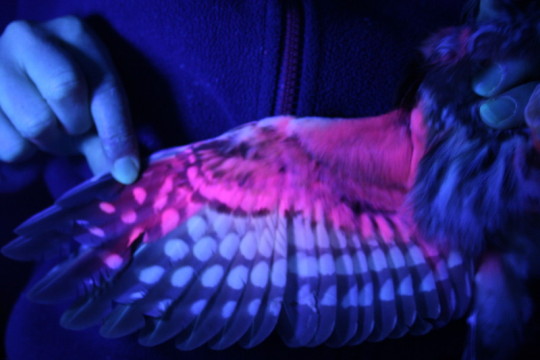
[Saw-whet owl wing under UV💡 ]
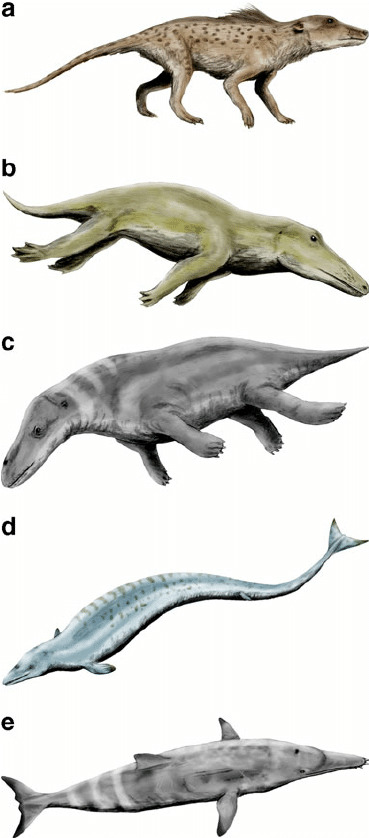
[OG whale💪🏻 ]
I've been playfully dubbed the "zookeeper of knowledge" by a friend in this context, after spending far too many hours working on a project because we kept getting side-tracked and discussing things not necessarily needed, but so incredibly interesting. (And it’s probably a title I'd gladly claim if it weren't so corny to be honest.) Regardless, it summarizes my commitment to becoming a curator of the captivating craziness that the animal kingdom has to offer. With a bias but passionate zoological perspective, I strive to share my spark of curiosity. ✨
Beyond my zoology lens, I strive for a focus on eco-consciousness in the work that I do, hoping to bridge the gap between science and the public and to foster stronger connection with Mother Nature.
As for translating these passions to children, I’m a firm believer in both transparency and honesty. While it’s almost guaranteed they won’t enjoy their first climate change lesson, I think forming traits of environmental stewardship and the understanding that actions have environmental consequences in children is critical if we want our passion for nature to be held by future generations. I remember my first lonely polar bear on a drifting ice berg video, and yes I was sad….but it left a vivid mark on my consciousness, shaping my understanding of the environmental challenges we face and it very likely brought me to where I am today.
Speaking of inspiring children, I cannot hold myself back as I have to show you guys what I found last week!
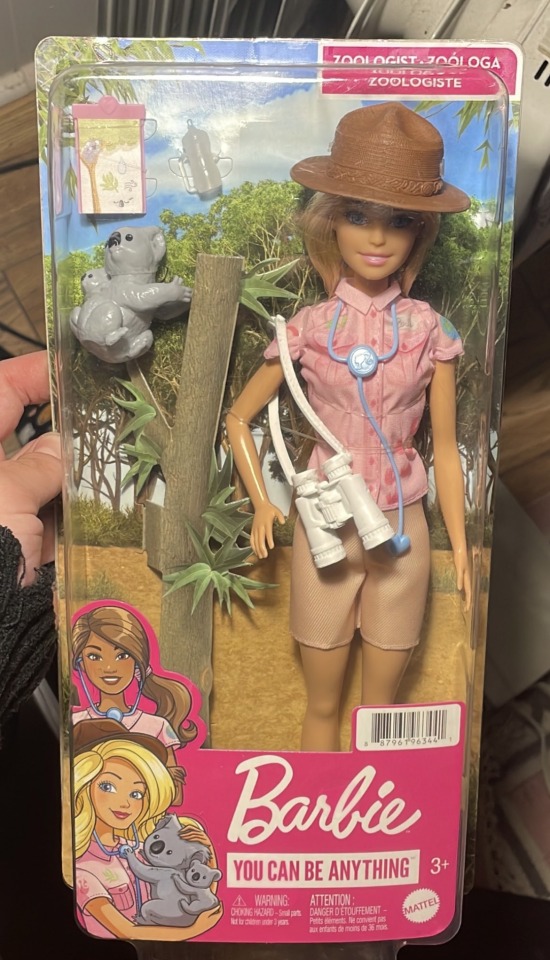
[Zoologist Barbie!!!!!!!!💗💗💗💗💗💗💗💗💗💗💗💗💗💗💗]
I'm not even that much of a Barbie fan but I think now I have to be! I would have exploded with joy if I had this as I kid! I mean, if Barbie is doing it, I can't even imagine how many little girls will now be exposed to the possibility of studying zoology or similar topics and I won't lie...I could cry 🥹 (not to mention how close the koala is to a lemur and my personal goals regarding that....interesting......verrry interesting 🔮)
Though I still think going outside with curiosity in mind is the number one way to develop a relationship with nature, I’d consider things and representations like this even more important in places like cities, where natural spaces are becoming less and less accessible due to never-ending infrastructure and the digital domination of screens and virtual experiences.
The allure of video games and online platforms often out-win outdoor activities at least in my own anecdotal experience, raising concerns about the disconnect between the younger generation and the natural world. I think environmental educators are becoming more and more important in schools, and I believe they play a pivotal role in counteracting this trend, as they offer opportunities for a child to focus on wonders within the natural world. I had a hard time myself trying to sound reasonable to many of my friends and family as a kid when saying I wanted to study animals and nature since technology was progressing so quickly and I was viewed as looking backwards.
and so I think this doll (or things similar) can reinspire or hold that flame when kids aren't yet to sure if they'll find a nice outdoor spot to explore, an educator excited to answer questions, or a community like Guelph that embraces natural sciences so much.
In my opinion, harsh climate crisis truths can surely be sugar-coated for young minds to an extent, but to completely wait until their old enough to ‘actually understand’ is just providing the perfect opportunity for a child to become a distracted or oblivious teenager or adult. Again, this is my opinion but at this point in time, in a current climate crisis with almost no signs of slowing down, being an adult in a country like Canada and purposely ignoring it is NOT cool!!
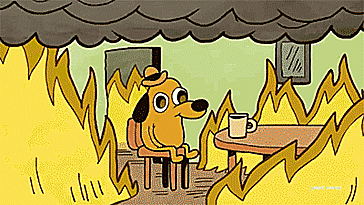
Now, we don’t have to live every moment with the weight of the world on our shoulders, and I don’t wish that on anyone! But I believe the absolute bare minimum is to consider our actions in relation to nature and provide the next generation the building blocks and exposure they'll need to make environmentally conscious choices. Concepts like reusable water bottles over disposable plastic ones, not littering, and realizing our planet belongs to others too aren’t scary things and if anything, promote cultures of care and community. These seemingly simple ideas start to lay the foundation for responsible and conscious individuals to gladly carry the torch of environmental awareness into the future!
Anyways, that's what's up with me, and so I hope you've found at least one thing on my blog that made you think about, reconsider, or learn something, and maybe even want to go hug a tree 💝🐛
Works cited
Johnson, N. A., Lahti, D. C., & Blumstein, D. T. (2012). Combating the Assumption of Evolutionary Progress: Lessons from the Decay and Loss of Traits. Evolution Education & Outreach, 5(1), 128–138. https://doi.org/10.1007/s12052-011-0381-y
Northern saw-whet owl outstretched wing under blacklight, by Seabrook Leckie, Attribution-NonCommercal-NoDerivs 2.0 Generic license, https://www.flickr.com/photos/rustyblackbird/
#nature interpretation#envs 3000#nature#zoology#zoologist barbie#climate change#environmental outreach#environmental education#barbie
3 notes
·
View notes
Text
I love fireflies too! For such a long time as a kid though I thought they were exclusively a tropical insect and so the first time I saw one down by Lake Erie I literally couldn't help but shed a tear hahahaha
Though I much prefer biology, I think chemistry is pretty neat too, with things like bioluminescence or even chemosynthesis being wild to think about, since they really are such alien abilities to us humans.
I thought if you aren't already familiar with the process of chemosynthesis I would share (and if you are, please let me know what you know! I fell into a rabbit hole about this only yesterday because of tiktok so I'm no expert).
Basically, deeeeep down in the ocean by thermal vents, there is literally not a drop of light as its just too deep. This totally made sense until we realized in the late 70's that things like worms live down there, because scientists had no clue what these worms could possibly be eating. (Since plants/algae need light to grow, and animals cant survive without eating said plants/algae/or other animals....).
Eventually, they found a whole bunch of bacteria that can produce their own energy rather than taking it from the sun, living at the bottom of the ocean which is absolutely mind-blowing to me. I mostly thought I'd bring it up because in a way these bacteria seem like the complete opposite of fireflies, never needing light at all, but at the same time seem to be somewhat equivalent in their beautiful, seemingly otherworldly abilities.
I also thought it would be interesting and fun to note that for years after climate change takes its wild ride, even after the sun dies out, or there's not a drop of oxygen left....there will be ocean worms.
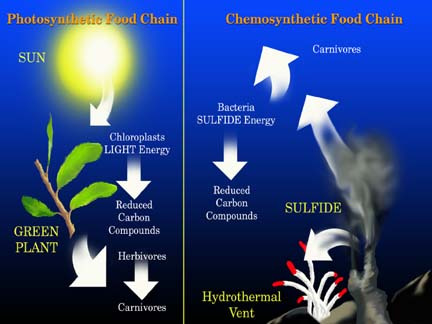
Biology: Chemosynthesis (ptbestaribiology.blogspot.com)
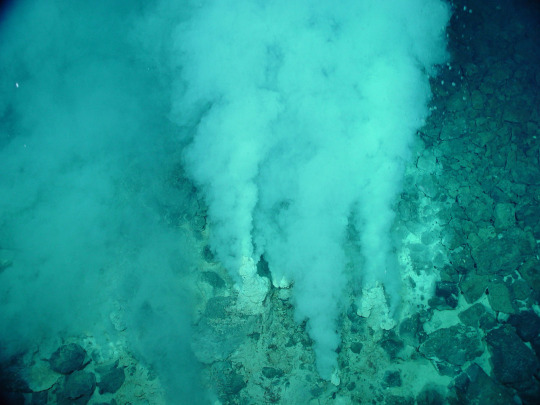
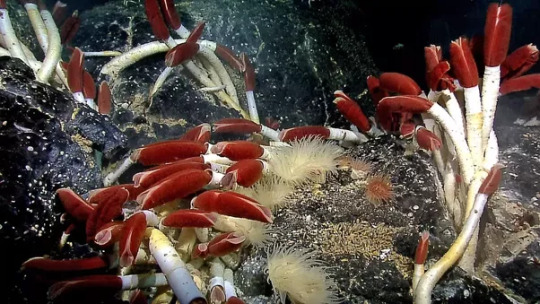
Hydrothermal vent and Riftia pachyptila which are the worms that live down there.
Dubilier, N., Bergin, C., & Lott, C. (2008). Symbiotic diversity in marine animals: the art of harnessing chemosynthesis. Nature Reviews. Microbiology, 6(10), 725–740. https://doi.org/10.1038/nrmicro1992
Blog 8 (week 9) - Fireflies; I just think they're neat
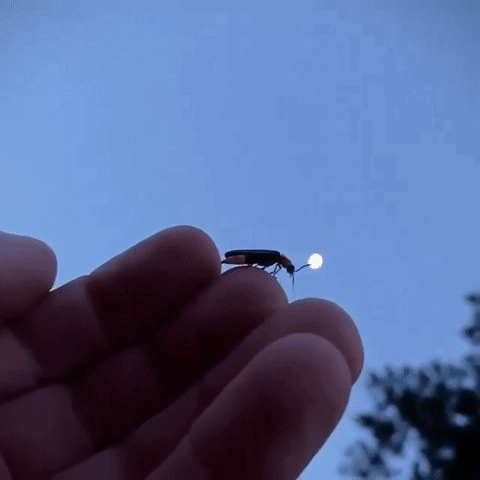
Bioluminescence is one of the most incredible phenomena on the planet. Before humans invented electricity and lightbulbs in the early 1800s, the only thing we knew that could produce light was fire and stars…and life.
As humans we like to think of ourselves as quite advanced and intelligent as we have mastered how to light up the dark - fire allowed us to find safety from predators at night when we were most vulnerable and allowed us to work even after the sun had gone down. But we aren’t special, so many species were making their own light long before we ever tried.
If you’ve read my old post on art and nature you’ll remember one reason I am very fond of fireflies is because of a chance encounter with a massive population during field work; but fireflies have always been near and dear to my heart - growing up in rural Canada, there's no shortage of time to waste and bugs to catch and fireflies where the first insect I ever really took the time to observe up close as a kid.
Bioluminescence is incredible for a lot of reasons, one being it is almost perfectly efficient at using energy (Branham, 2005). Fireflies are tiny! They don’t have a lot of material and energy to waste so their light needs to be as cost effective as possible. If you’ve ever touched a lightbulb that’s been on for a long time it's hot! But fireflies don’t waste any light energy as heat - both for their own safety and to save precious calories.
For glow-worms (larval fireflies) flashing lights are a warning to predators - a giant neon sign saying “HEY! I TASTE REALLY BAD!” (and they do, so if a bird eats the glowing worm once, it's unlikely to want to do it again). Adult fireflies have unique flash patterns for their species and use their light to attract a mate (I’ll save you my attempts at flashing jokes, you’re welcome) (Branham, 2005). I’ve you’ve ever taken a date on a romantic night out to look at the stars, are you and the firefly really that different?
So how does it work? Well bioluminesce happens through a complicated looking chemical reaction like this:

(Navizet et al. 2011)
It looks science-y and difficult but at its core ATP is the same molecule that your body uses when it needs energy. When you eat, the energy from your food attaches a phosphate “P” onto the molecule and then you rip the phosphorus off to use that energy when and where you need it! When the P is ripped off to do biofluorescence the energy is used to power a reaction between magnesium or calcium, oxygen and a chemical the fireflies produce called luciferin that produces light!
As pollen and nectar foragers- they are also pollinators hard at work even after everyone else is asleep. So thank a firefly for more than just their incredible light! I think it's always good to remember that as separate and exceptional from nature we may consider ourselves to be as humans - most of our technology is something nature did first and really - we’re not so different from the rest of the animals we share a planet with.
Branham, M. (2005, September 5). How and why do Fireflies Light up?. Scientific American.
Navizet I, Liu YJ, Ferré N, Roca-Sanjuán D, Lindh R. The chemistry of bioluminescence: an analysis of chemical functionalities. Chemphyschem. 2011 Dec 9;12(17):3064-76. doi: 10.1002/cphc.201100504. Epub 2011 Oct 13. PMID: 21997887.
9 notes
·
View notes
Text
Madagascar, Lemurs, OneHealth.......a Masters? 🏝️🐒🔭🎓(U9)
Hey friends, its been a while and I’m glad you’re here!
This weeks’ prompt encourages us to share something about nature that gets us excited and ooooooooooooooooh am I excited! Like I’ve mentioned before, I’m a 4th year zoology student which 1) means I know a lot of cool animal stuff (ask me questions!), and 2) it’s almost time for me to graduate!
So today I’d like to talk about my current Masters application and the really cool OneHealth conservation research I have done (and hope to do again) in Madagascar!

Over the summer I got the opportunity to take the One Health Approach to Conservation Field school where we were taught zoological, ecological, and anthropological approaches to conservation issues in Madagascar’s rainforest and unique dry deciduous forest within Ankarafantsika National Park (Picture a rainforest but take away the rain, the biggest animal is the same kind of lemur as Zoboomafoo, and also the soil is like sand!!). While I won’t go into too much detail about most of the field work we practiced, like tree identification, phrenology, and size measurements, participant-observation sessions in tree-planting, rice harvesting, and a local village classroom, and of course-tent living and consistent rice and beans eating, I willllllllllll go into detail about the lemurs, cause oh so much do I love those little guys.
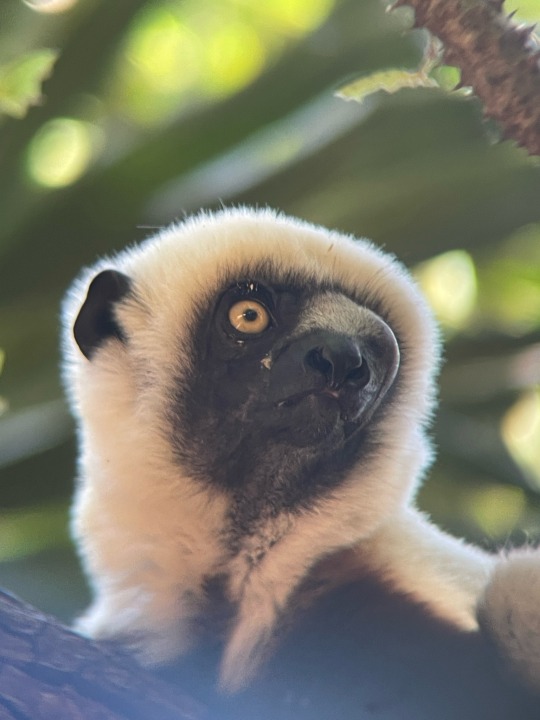

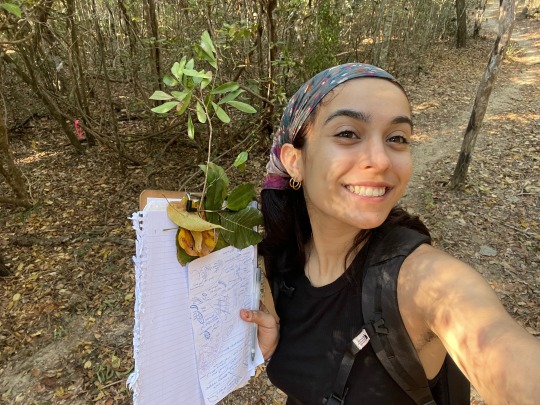

(1. Male with eye tumor/injury, 2. me with two mothers (if you look close you can see 2 baby heads!), 3. me taking leaf samples to make a dry-season Tree ID sketch, 4. my luxurious living quarters for the month.)
Our instructions were to do both focal and scan sampling, but my absolute favourite part of the trip was following the lemur groups and trying to identify the specific individuals while they were either chilling in our camp or being extremely chaotic in the forest.
During these observations, not once but twice did I witness 2 separate groups have lemurs literally try to kill an individual from the other group... and so when asking about this to my professor, the general conclusion we came to after he told me he’s never seen such violence despite coming to the park for years, was that the increased forest fragmentation (deforestation making the forest into sections rather than one continuous space) might be forcing groups that should be far apart into sharing the same spaces, causing fights for space, food, etc.
This species of lemur (Coquerel’s sifaka) is critically endangered and is a huge sense of pride for the indigenous people of Madagascar. Many of the parks residents follow taboos that forbid lemur hunting and consumption to protect these creatures. Unfortunately, its possible that either the past or current farming practices of some of them are negatively affecting lemurs, potentially without realizing. Not only does this become an anthropological issue, but if true, is a logistical problem best answered with knowledge of the lemurs behaviour, spatial and abundance knowledge on the plants used for food and shelter by both lemurs and people, and of course interviewing, participating in, and potentially educating and being educated by the residents to get a proper understanding of how to tackle this problem.
And so that’s the general gist of what I’ll be diving deeper into for my Masters, wish me luck!
[My friends video of one of the violent interactions (I know it looks like they are hugging but they have giant teeth with a strong bite force, are the size of toddlers, and it didn't give up until it thought the other was practically dead), the lemur that didn't run away was left with a bleeding head and injured arm but we think she survived!]
#Madagascar#Ankarafantsika National Park#OneHealth#Zoology#Ecology#Anthropology#Sifaka#Coquerels sifaka#lemurs#field work#conservation#envs 3000#science communication#behaviour research
12 notes
·
View notes
Text
Hey fellow interpreter! You’re post reminded me of so many things while reading, including my kindergarten graduation which I really wasn’t expecting! They had us sing “What a Wonderful World” in front of our parents, I figured for the exact reason you talked about; As a reminder to take a moment and appreciate the beautifully detailed world around us.
Mentioning music has the ability to help heal, I was also reminded of that incredible story of the violinist who underwent a brain surgery, and was asked to play during the procedure to ensure the part of the brain responsible for this type of functioning remained unharmed. Can you imagine? Not drugs or a fancy machine, but the process of taking part in creating music protected her and did what technology couldn’t even do.
I’ve experienced first hand how the sounds of nature (especially a summer’s day spent laying on the beach!!!) rejuvenate and refresh you like nothing else, and absolutely love when I find music where those sounds are used for inspiration. An album in particular that comes to mind is Wake up calls , which combines a bunch of different bird calls into really cool songs that sound like he trained the most talented collection of birds in the recording studio.
Finally, I was wondering what your thoughts on singing/healing/meditation bowls were? You know the metal-type ones that are struck or circled for them to ring out? I think I would consider those to be a part of the natural (and healing) sounds you and I are talking about despite them being a manmade thing but I can't really explain why?
Natural Healers: Music and Nature - Blog 7
Music and nature, to me, are both artistic and beautiful. The sounds of nature, such as trees blowing in the winds, waves crashing along the shore, and birds chirping, are just some of the sounds that replicate music in nature. Pairing both nature and music together can have therapeutic effects, and I often find myself sitting or walking in nature with headphones on when I have a long or challenging day, but I also enjoy doing this when I am having a great day! No matter what, nature and music are intertwined and benefit one’s mental health.
Scientifically music has been proven to have therapeutic properties and has been proven to help heal disorders, including cerebral palsy and brain injuries, all by interacting with and stimulating our brains (Trimble and Hesdorffer, 2017). Similarly, nature has also been scientifically proven to improve our mental health. Spending time in nature and absorbing the beautiful sounds that nature creates has led to improved brain activity and ability, has aided in sleep, and influences more physical activity (Jimenez et al., 2021). I would completely agree with these studies, as a run or walk in nature with rhythmic music is so motivating and invigorating!
To dive into the music world, nature in music is prevalent in many songs, and one of the most well-known songs related to nature is “What a Wonderful World” by Louis Armstrong. Armstrong interprets nature by describing “trees of green, and clouds of white,” and with his descriptions, he mentions how wonderful our world is from a natural aspect. Music, in my opinion, is another method of storytelling that allows for history and science to be passed down, as well as cultural aspects! Songs related to nature can describe to people around the world what their environments look like, which can take a positive or a negative route. On a more negative yet necessary note, Michael Jackson’s “Earth Song” uses music to convey the issues with the world, ranging from violence in the form of wars to violence against the environment. He explains that animals, like elephants and whales, and plants, such as flowering fields, are struggling and crying out to us due to the destruction we have caused. Music can tell positive and negative stories about nature, share history, connect to our emotional sides, and heal our mental health. Nature can also tell stories, benefit our mental health, and create music itself!
I am constantly listening to music and music from various genres! There is music for every mood that I am in, and it can help explain the emotions I feel. Some of my best memories of music are when I listen outside in the summer, lying on the beach in the sun! I often long of those times, especially in the cold winter months. Other memories include listening to music on long drives while I admire the beautiful fall colours on the side of the road.
Music and nature have significantly impacted my life and are most definitely intertwined! I am excited to read about everyone’s experiences with nature and music.
References
Jimenez, M. P., DeVille, N. V., Elliott, E. G., Schiff, J. E., Wilt, G. E., Hart, J. E., James, P. (2021). Associations between Nature Exposure and Health: A Review of the Evidence. International journal of environmental research and public health, 18(9), 4790. https://doi.org/10.3390/ijerph18094790
Trimble, M., Hesdorffer, D. (2017). Music and the brain: the neuroscience of music and musical appreciation. BJPsych international, 14(2), 28–31. https://doi.org/10.1192/s2056474000001720
2 notes
·
View notes
Text
Nature sings and man is it fun to listen! 🎶🐤🌊🌲🦗🍂🏖️(U7)
One of the many beautiful, intriguing things about nature is that it interacts with not one, but all senses. You see, feel, smell, and often taste the world around you but my personal favourite? The sounds!!
You can’t walk through the forest without hearing the leaves under your feet, go camping in the summer and avoid the crickets or cicadas calling away, or be within even a few hundred meters of a water body without the comforting crash of waves patting you on the back. There's a symphony of music in nature everywhere and it only takes a moment and a deep breath most times to notice.
Speaking of music in nature, I thought I'd try out a little vlog moment to share with you a hack I've recently learned on how to ID natures most notorious singers! This week’s prompt was timed well for me, as I’ve spent most mornings walking to school working on my bird ID by sound, a great opportunity to shout out the worlds' natural musicians. (let's give it up for birds!)
(so sorry there weren't any birds out guys....guess you'll just have to try the app yourself 🤷🏻♀️, you can download it here!)
As for nature in music, I’ve added some of my favourite examples of music I truly can’t separate from nature, where when they play I unavoidably imagine I’m just a bug, or the wind, or something like that (and I’d really love if you shared some with me too!)
Ambi Nature Radio station - a live stream of the sounds of a forest in Switzerland! On the Radio Garden site, you can access any radio station in the world, with many others nature themed like this! (I use this for study background music a lot)
Mother Nature's B**** by Okay Kaya - if you give the title a chance, the song’s a reminder to not take everything so serious, because in the end, it’s Mother Nature that’s in control. It’s only a few words but it’s groovy and happy and well….I agree with her.
Wriggle (instrumental) by Cosmo Sheldrake – Hear me out……when this song plays I can almost hear a whole mini movie: a rabbit minding it’s little business, who starts getting chased by a wolf and then they’re running and dodging each other through the forest, passing other plants and animals who chime in too. It reminds me of the urgently late white hare from Alice in Wonderland and I think it displays through audio a good example of how chaotic (but beautiful) an ecosystem can be.
Entangled life by Cosmo and Merlin Sheldrake - Other than Cosmo’s voice, this song was made by amplifying the sound of fungus digesting an actual book, so what you’re hearing is mushrooms singing too!!
#merlin#merlin bird id#nature interpretation#mother nature#nature#bird id#bird songs#biodiversity#envs 3000#cosmo sheldrake#okay kaya#wriggle#entangled life#music in nature#radio garden
4 notes
·
View notes
Text
There is no peculiar merit in ancient things, but there is merit in integrity, and integrity entails the keeping together of the parts of any whole, and if these parts are scattered throughout time, then the maintenance of integrity entails a knowledge, a memory, of ancient things…. To think, feel or act as though the past is done with, is equivalent to believing that a railway station through which our train has just passed, only existed for as long as our train was in it. - Edward Hyams (U6)
Hey folks! I found this weeks’ textbook readings to be pretty interesting with its inclusion of writing tips; Especially the one suggesting that a solution to writers’ block is as simple as writing a whiny letter to your mom and ranting about the topic….and then just deleting the dear mom parts. I also really enjoyed the notion that the process of writing hasn’t even begin unless it’s been made physical, cause then you could keep working on it -including and especially- subconsciously, until you think its truly done.
Anyways! Let’s get to this quote up here, which asks us to consider why we appreciate the things we do in a historical context.
While things that have been around for many years are often fascinating and have the ability to teach us a new perspective or concept from the past, the author suggests that the old age of something does not grant it inherent value. True value comes from the things or ideas that have not only been around for generations, but also maintained and passed on throughout them. It is indisputable that for the majority of history, storytelling was the main form of keeping track or remembering something and so being held in the minds of people for years to come may be the ultimate display of gratitude- with humans generally being grateful for what made us who we are and the processes it took to get us here. As an example, generations of a family may have lived, hunted, and foraged within a particular forest, passing on the knowledge of their land to their children such as how to find the best growing spots, track animals, navigate, etc. With times having changed (as they unavoidably do), perhaps a child from this village/tribe/nomadic group no longer decides to live in the forest and moves into a city or town such as the ones you or I am more familiar with (Like Guelph). Not having to depend their life on the forest anymore, they might go on to teach their kin less practical survival strategies and instead lessons on things like balance and respect in the forest, since it once was integral to their ancestors survival. (Now continue this chain a few more times-or the entire length of human history-and realize that many of the things we value today are because our lives depended on it!)
David McCullough once wrote that “we need the past for our sense of who we are…and what it is our duty to protect.” and I think this intertwines beautifully with Hyams idea. We cherish what those before us protected, and to some extent that is our origin story. What we choose to spend time around or tell stories about may seem random, but like everything, there's always a purpose.
0 notes
Text
🦅🐦🦚🐥🦜🦢👯(us)🐓🦉🐧🦃🐦⬛🦆 Hi Luca, I hope you've been well!
It was a wonderful surprise getting to my bird banding lab a couple weeks ago and seeing you were teaching with Chris! I adore your dedication to birds (and the 4am wake up 🙇🏻♀️) and love to see when other young adults find a passion outdoors. It was also really fun cause I think you are the first anointed “scribe” I’ve been witness to and thought the dedicated word choice by Chris was great (the person who records the data because the other person has a bird in their hands). You explained the types of usable data which makes up the science in the bird banding process, but I thought the bloggers on here who aren’t familiar with it might need a bigger pull into the topic and what better way than to share pictures of the process, and of course the birds! I’d love to see some pictures from your experiences and have a little birders unite moment haha
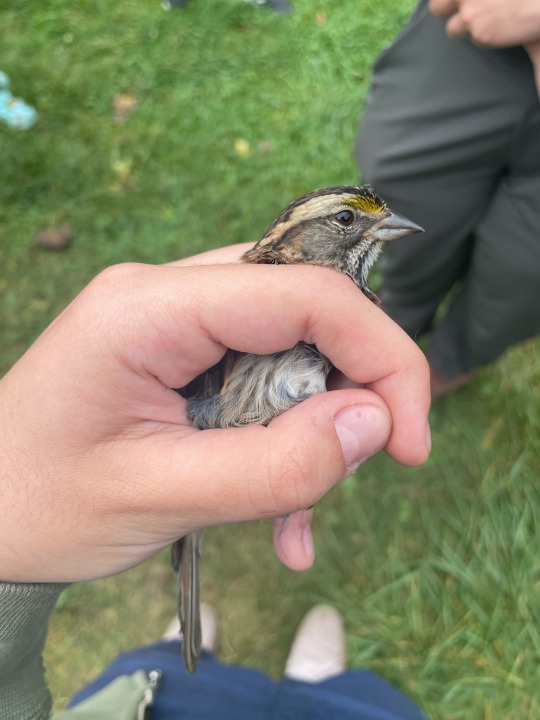
P1. A sparrow (I can't remember what kind, help!) that I was holding in banders grip before it was released after banding.
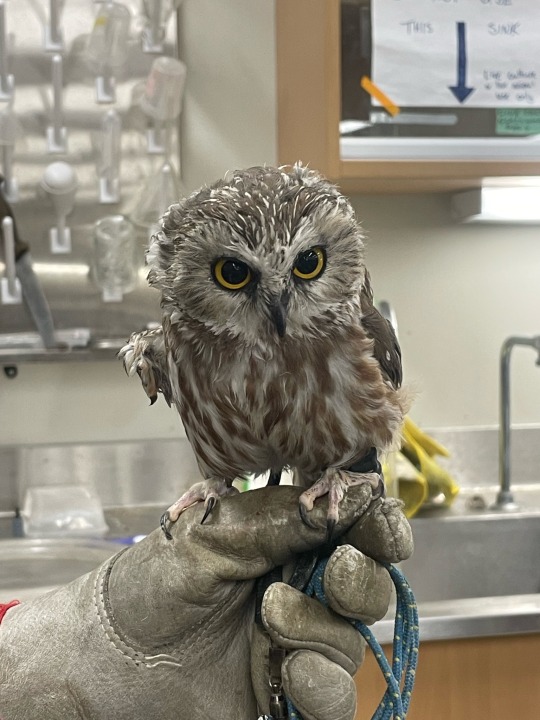
P2. A saw-whet owl from a lab presentation by Wild Ontario I had earlier this week from the same ornithology lab (I would die for her…she is the cutest).
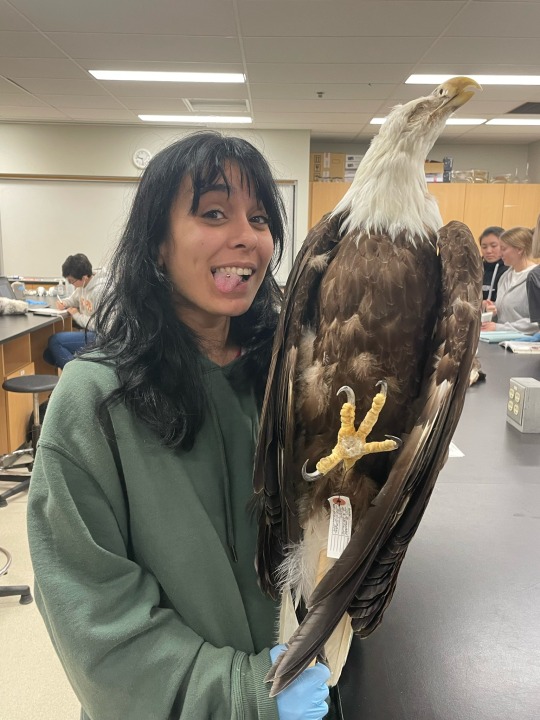
P3. Me holding a preserved Bald Eagle from the schools specimen library for an ID practice lab (I already knew it was a bald eagle guys duh…I just needed a cool picture to show my dad).
While I’d imagine it’s many of them since you love birds, what’s one species you hope to see in the net every time its up? I don’t think I have a positive answer for this one cause I’m still pretty new to this and am just happy to be there and so close to birds in general, but...I would NOT want to have to de-net a blue jay….get those psychos away from me (respectfully). I would also like to formally thank you for the opportunity to share bird pictures, cause I can’t keep asking the people near me if they ‘wanna see something really cool'.... they're starting to catch on.
Week 5: Bird Banding
Prompt: No prompt - write about anything! Welcome back everyone,
Since I have the freedom to write about anything I want, I wanted to talk about my experiences doing research and work with birds! To start off, birds are my passion if not already obvious! They mean a lot to me and are the thing that makes me truly happy. As a kid, I always loved them, and that love has grown more and more as the years have gone on to where I am today.
I was really lucky this summer to be able to start my experience in doing research with birds, where I was learning bird banding and migration monitoring with the TRCA in Toronto. I would wake up at a crisp 4 in the morning to drive down to the park before sunrise - people always gawk at that timing but birds are always up so early, so we have to get there before they do. We head into the park and set up big nets called mist nets - they have large pockets that birds will be caught in when they fly into. We head into the research station and check the nets every half an hour. When we come across a bird caught in our nets, we carefully extract them and place them into bags to be banded. We head back to the station and start the process of giving each bird their own unique ID band and then releasing them.
The purpose of banding birds is to track a lot of things, especially migration. The tags are incredibly unique and only correspond to one singular bird, so if it migrates, you are able to track where it’s been since birds stop to rest while migrating. A lot of data is kept, such as species, age, sex, ID number, the amount of fat they have on their bodies (which can tell us about migration habits), and wing length. We use specialized tools for these, and while stressful, is a harmless process for the birds. Sometimes, other research is tied in as well. When I was volunteering, we were also plucking tail feathers on birds to use in research studying isotopes found in those feathers. This research is used in many ways such as finding breeding grounds of birds, studying diet, immigration of populations, just to name a few.
Banding in general is incredibly important as a science since it is the only way we really know about migration habits. We can learn where they go, how long it takes them to get there, and where they stay over the winter. Especially in modern day, this also heavily contributes towards conservation efforts since songbirds especially have been rapidly declining for decades.
My experience was extremely pleasant and I am happy to continue doing this and being able to teach others about birds and helping others learn in workshops.
#bird banding#ornithology#bird pics#bald eagle#sparrow#cutest owl ever and ever and ever and ever and ever#saw-whet owl
2 notes
·
View notes
Photo
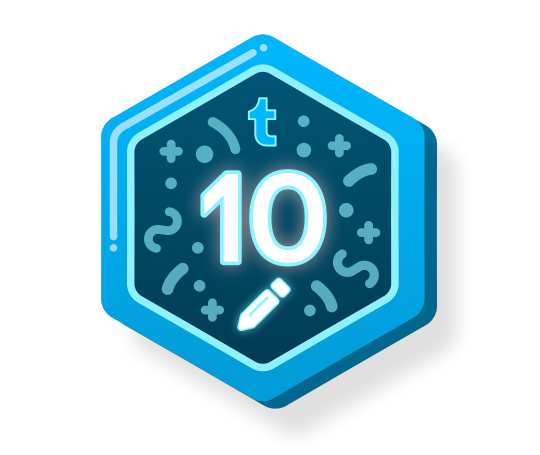
10 posts!
ENVS 3000 bloggers? more like mother natures disciples 🙏🏻☘️🐌🫂🌷
0 notes
Text
Science is like a bestie that fills you in on all the gossip; You don't neeeed the drama, but it sure is hard to stop once you've started 🌱🌳(U5)
With this week’s topic being nature interpretation through science, I couuuuuuld talk about the pros and cons and try to discuss this from an unbiased perspective, but that would be doing an extreme disservice to my passion which has made me the person I am today. (me 💏 science)
But! I will start off by saying it’s obvious we don’t need science to describe or navigate the wonders found throughout the natural world and any inconsideration or disapproval of traditional knowledge is arrogant and silly. For example, the first people to travel to islands like Samoa, Tonga, or Hawaii doing so with only the stars and patterns of the wind and sea. Many years later we now know that the ocean floors’ topography influences wave patterns, but one can assume with them living and breathing that ocean they knew that long before science did; feeling the ocean and eventually coming to know it, using their lived experiences in ways we likely can’t even fathom. While of course this is an extreme case, one didn’t need to take part in one of the most triumphant feats in human history to recognize the patterns in the nature around them and make them useful. Another example of this would be the many years spent by various indigenous people around the world, observing the diets of sick animals, taking part in it, healing, and discovering what science would now describe as “medicinal plants.”
Now here’s where I think a lot of science-in-natures importance comes from: in Canada, like in many developed countries, we aren't living as immersed in the natural world as people once did. We’re spending more time surrounded by 4 walls than green, and we’re distanced from the land and animals that were once the teachers shaping our knowledge. As a result, I think we’re missing out on a lot of the intricate details, the interconnectedness, and the hidden stories we would have been exposed to and would have understood. While human advancement is jolly good and swell and all that I will be honest with you…..I have wanted to live in the jungle or something of the sort since I was like 5. I think there is immense importance in growing up alongside the natural world (not necessarily the jungle, I just have a dream ok ) with many lessons to be learned through experience but when that’s not possible, science can be a close replacement.
Having a home for shelter and knowing grocery stores were a thing, before science I would’ve just appreciated a tree for its aesthetics, its fragrance, the shade it provides or the good-tasting fruit it bears but with science? I see it as a mother, nurturing animals in its branches, and countless more microogranisms in its roots. It’s a producer of oxygen and a vital carbon storer mitigating climate change. It heals the soil and holds it in place, and it can even make energy with just the suns light. Sure I’d see the squirrels and birds making nests in the trees throughout my life and make that shelter connection on my own, but the rest of those things would probably remain a mystery to me if someone didn’t make it a point of adding natural history to school education (and that is crazy!!!!!!!)
0 notes
Text
Nature is art and we, (yes you!) are nature 🖼️🌷🫂(U4)
I was never necessarily interested in going to art galleries as a kid, but man, did I beg to go to the museum. A building with a collection of natures finest treasures and cryptic oddities sounded like a fun place the second I learned what it was, but I guess the beautiful art of paintings and sculptures didn’t quite do it for me. Even now, I much prefer museums to galleries (incoming likely an extremely controversial take🚨🚨🚨), with my personal trips to the Toronto ROMs natural history exhibit and my experience of seeing the Mona Lisa and other works in Paris’ Louvre being almost equally as exciting. (I will accept any science nerd comments with dignity, I know my truth.)
Thinking about who I am to interpret both nature through art and the gift of beauty, I’ve learned to notice that my perspective in nature interpretation sits on the intersection of science and art. In my opinion, it’s crucial to recognize that when interpreting, you don’t have to pick one or the other since they often compliment each other tremendously. In this week’s readings, I thought the quote “Our ability to perceive quality in nature begins, as in art, with the pretty,” is a perfect summary of how I feel I was initially drawn to nature; but I suspect my strong personal preference to the living art comes from the many why’s and how’s to be asked of it. While the answer “because the artist thought so” is perfectly acceptable to me in most cases when inquiring about a painting or something, the questions begging to be asked by nature- like where it comes from or why it does something- inspire me to take part on a much deeper level. Furthermore, with an ongoing education in zoology, concepts like evolutionary theory sort of promote the “everything has happened for a reason” ideology in a sense , since the evolution of a trait had to have been advantageous to persist, making everything so much more incredible. To be so in love with nature is of course to understand not everyone is on the same page, as I could spend my whole life trying to convince others that the gift of beauty is in everything outdoors, but I’ll stick to just you guys for now 😊
To me, the gift of beauty that’s to be found in nature is so much more than aesthetic appreciation, and I’ll try my best to explain using the lens of ecological interconnectedness. If you immerse ourselves in the natural world to truly appreciate its beauty, you begin to grasp the intricate web of life that surrounds you and unveil the many interdependencies between species, ecosystems, and the environment as a whole. The beauty within a vibrant rainforest or a flourishing coral reef isn’t just about the “ooooooh so pretty” but is a reflection of an immeasurable amount of ecological relationships at play. For example, the relationship between pollinators and flowers where the bright colours and variety of shapes have evolved to attract specific bees, butterflies, bats, or birds. The beauty in this relationship is not solely for our visual pleasure, but a testament to the natural worlds dedication to live!
I really do think there's beauty in everything in nature, from the mundane to the exotic, whether common or rare almost simply for existing and so I wonder if there's a word in a language somewhere for this specific appreciation that I'm talking about?
Till next time!
21 notes
·
View notes
Text
I love this movie!! I actually saw it for the first time just this year and I finally understand the Studio Ghibli movie love that seems to be universal. I can imagine one of the biggest reasons for this is the beautiful scenic depictions they have, gifting the viewer with moments of tranquility as if they were there.
I would say our nature interpretation ‘origin stories’ are pretty similar! I also hope to one day open an animal sanctuary and was inspired by nature documentaries. For me it started with the idea that I just wanted to see everything in person, knowing that the resonance in a lions roar or the shimmer of an incredible butterfly are going to be exponentially better when experienced ‘in real life,’ and so I found myself just wanting to be taking in moments like that all the time. As I got older and started learning animals had ecological roles and of the incredible balance they were responsible for within the natural world, like you said, I started realizing that almost everything had that same wow factor. Either having undeniable physical beauty like a field of flowers or fancy bird, or having beauty for simply existing and being sustained in this world …..like…..what do you mean theres a little critter with no eyes or arms or legs living in our soil? And he helps nutrient cycling? And now we can grow food and plants and have forests? What a beautiful world! Amazing! Incredible! Yes!!
Thanks for the read and the reminder to take a second and maybe watch a nature documentary during this stressful midterm week 😊
Blog 4
Prompt : Who are you to interpret nature through art? How do you interpret “the gift of beauty”?
“Art is in the eye of the beholder, and everyone will have their own interpretation”. This quote was written by E. A. Bucchianeri, and it gave me a sense of place within the world of artistic interpretation. Growing up, I thought appreciating art meant simply going to a museum and studying artifacts and paintings, but I now know that art can be found anywhere. It can be as simple as taking a photo of a sunset you are amazed by, or by watching movies, shows, or documentaries. I never thought of myself as an interpreter, but this course has proved that I am one even though I never realized it.
Some forms of art that I’ve always had an appreciation for are movies and documentaries. The visuals and imagery from movies help to set the tone of the story and there are so many ways you can then interpret it. One movie that particularly caught my attention was Howl’s Moving Castle from Studio Ghibli. The film explores many themes, and you can tell that the producers put so much thought into the animations, the landscapes, and the characters. Although this movie is animated, I think it does an amazing job of capturing the essence of nature and how we can find beauty in real life. I’ll also add some pictures of scenes from the movie!
Growing up, I used to watch documentaries on Animal Planet, which inspired my love for nature and the environment. They were an opportunity for me to learn what our world has to offer and the beauty that lies within it. They painted a picture of how so many animals live in their environments and in turn, benefit them. The camera work allows viewers to appreciate the art and beauty of nature on other continents. I got the opportunity to learn about our world beyond where we live, and I was able to admire nature within Canada as well.
The Animal Planet documentaries are what sparked my interest in pursuing an environmental career, and more specifically in animal conservation. Climate change and human activities pose a big threat to the environment and its flora and fauna. These documentaries showed me the beauty of nature and how we may lose it one day, and I want to do my part as an interpreter to protect it and make sure that future generations can benefit from it. I hope to one day open my own animal conservatory and rehabilitation center. I mentioned before that I never saw myself as an interpreter, but there are so many ways to define it. I am a curious interpreter, who wants to find solutions to our problems and is continuously learning how to respect nature through art.

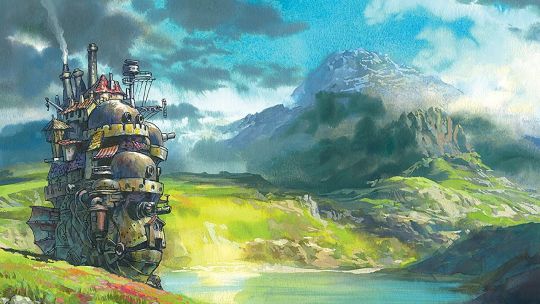
8 notes
·
View notes
Text
Hi Elle!
The way you managed to include so many important notes in such a concise post is so impressive, I’m jealous! Mentioning how access is pivotal in shaping your perspective on things, and with the phrase ‘privilege also creates blind spots in our empathy’ especially, it seems like you managed to summarize my entire post and more :)
From this unit, realizing that the reason I’m involved in natural sciences is because of yes, my interest, but truly because of the privilege I had growing up, being exposed to playing in forests, and a backyard, like you said too, is kind of crazy. It almost sounds silly now but before this units’ nudge of a personal privilege reality-check, all these years I just thought, “yeah, some people like cars, or music, money, people, nature, whatever it is, and then they just decide to pursue careers based off of that, right?” (To an extent, of course.) And I was pretty blind to the fact that what people have the privilege of being exposed to (or the opposite) has a major influence on what they decide to get involved with.
It was also a validating moment reading your wader situation story, although I’m also annoyed that happened to you!! I’ve been in similar situations, with my internal monologue in those moments something along the lines of “it’s okay, just be thankful you’re here and they had one in the first place” which is such an eyeroll thinking back on as a woman involved in stem. We deserve to be here!
Anyways, you hit the nail on the head, talking about how a pile-up of these experiences causes feelings of rejection, and I guess it’s a wonderful reminder that as interpreters we should always keep an eye out for making experiences as equitable as possible.
Week 3: Lets Talk Privilege, Empathy and Access
Google defines privilege as “a special right, advantage, or immunity granted or available only to a particular person or group”. I tend to think of privilege as everything I have never thought to ask or work for but non-the-less benefited from.
Privilege also creates blind-spots in our empathy. Things we don't consider to be obstacles or concerns can cause us to make our interpretive work isolating or inaccessible to others. For example, I speak French and English and speak both very quickly. When I used to coach skating, it took reminders from my supervisor or very confused looks from my student (a newly immigrated canadian excited to play hockey) for me to realize I wasn't accounting for our language barrier at all; I also never considered how my verbal instructions might be frustrating for him to understand or make him feel unwelcome on the ice. Heck, this middle school kid had the guts and confidence to join a learn-to-skate program where he knew most of the skaters would be at least half his age. I should have been doing everything in my power to make that confidence worthwhile. I have been on the other side of this as well. In one of my first jobs in the environmental science world I was part of a team of three men and two women (myself included). Unfortunately, our office only had two sets of waders below a men's size 9 despite having multiple female biologists, and on day two of work, one of the small waders sprung a leak. No one had considered that we might need different equipment because they had never struggled to find what they needed to do their job before. These examples are both small, easily fixed problems that maybe ruined a day at most, but if incidents like these pile up or happen regularly when an individual tries to access interpretive services (or provide them), they create a sense of unwelcome and unwantedness that will prevent excellent interpreters and guests from wanting to participate.
Another important relationship between interpretation and privilege is access. It is largely due to privilege that I became interested in environmental science and interpretive work in the first place. I grew up in a house with a large back yard, I have family with a cottage, and my best friend had many acres of private forest we could explore. I lived within a kilometer of bike and walking trails that were safe enough for me to explore alone as a young woman and if I ever felt unsafe I had my large dog Rudy to take with me. We think of nature as free space that everyone should have access to but it costs money to live close to nature or find transportation to these areas. If my family had never moved from Detroit where I was born my relationship with nature and my career would look a lot different. Because I had access to natural spaces I am now a young interpreter; if most interpreters are from similar backgrounds as me (white and middle class), none of us will notice when we are excluding others because of the earlier mentioned empathy gap.
I am still learning about my privilege and how it affects my work and will be doing so for the rest of my career so I look forward to hearing your thoughts and discussing further!
Until next time,
Elle
6 notes
·
View notes
Text
Privilege & Perspective in Nature Interpretation ☘️🔍 (U3)
Hey folks!
Have you ever heard of the term or the idea of the ‘invisible knapsack’ by Peggy McIntosh? Because before this week, I hadn’t, and I really feel like it’s a wonderful analogy that gives perspective on what having privilege means – and I promise, this will relate back to nature too!
In most circumstances, privilege can be explained as the exemption of a duty or liability based on an assumption coming from something such as someone’s skin colour, race, social status, job, country of residence, etc. For example, the case where a white man gets a loan with no questions asked, because in his invisible bag it’s been assumed that he has had a previous job or a good understanding of money since ‘most white people have jobs,’ or ‘white people are trustworthy,’ or something along those lines.
When thinking about how privilege influences perspective in nature interpretation, I’ll be honest I had a hard time at first. I thought, “Outdoors is the one thing we all have? It doesn’t take anything special to go outside and take a deep breath, to look or listen to the trees in the wind or birds chirping outside.”
But then I realized, yes it does.
And to be able to do those things is a remarkable privilege. Not everyone has healthy lungs, eyesight, or hearing, and with climate change causing more and more issues around the globe, clean air, swimmable beaches, and green spaces home to animals are no longer available to everyone. Remembering when not here in Guelph (which is a town with well preserved and beautiful green spaces for those of you who don’t know), I can also visit a lovely boardwalk on the lake next to parks just blocks from my childhood home, I was sort of taken aback, being confronted with the fact that not everyone has the opportunity- no, the privilege- to have nature as a refreshing space, and it’s as if it finally clicked for me why not everyone loves nature the way I do, or why there's not a universal understanding as to why it should be shared in the first place.
For most of my life, I’ve been assuming in everyone else’s invisible knapsack there’s been a nice park, or big backyard, or cottage or beach they either love or have just been taking for granted (a terrible perspective!)
While there are plenty of worse realizations to be had surrounding privilege at this age and in this social climate, I’m almost embarrassed I hadn’t realized I thought this way. In nature interpretation, there is never a right or a wrong way of doing things because no one can ever correct you on your own experiences. But, your perspective, and the privileges that helped you get there (which might just take a lifetime to understand) have to be acknowledged in order to provide a truly open space for others to join the nature loving wave :)
Research referenced:
McIntosh, P. (2015). Extending the Knapsack: Using the White Privilege Analysis to Examine Conferred Advantage and Disadvantage. Women & Therapy, 38(3-4), 232–245. https://doi.org/10.1080/02703149.2015.1059195
0 notes
Text
Educating young kids about the importance of turtles or even just fueling turtle related fascination is such a wonderful idea, turtles don’t get enough love!!! I would say introducing the future to a potential favourite animal or the inspiration to protect wildlife can never start too early :) I’ve had my fair share of magical, but also silly moments interacting with nature and kids and there’s really nothing like it.
When I worked a couple years at an exotic animal outreach program, I was an assistant for those birthday parties or school events where fun animals would be brought for presentations and man, kids are hard to keep focused! I’ve found asking them a bunch of questions would get them on track pretty fast, but I thought I’d share one particular story where asking questions led to a complete derailment (but still a success!).
While doing my first solo show, before pulling a boa out of the crate to show a kindergarden class, I was giving them hints so they could try to guess the kind of animal. I said, “alright, so my friend here has nooooo legs, does anyone want to guess what it is?” and a little boy put his hand up so confidently saying “a mouse.” Trying to hold back laughing, my second hint told the children that this mystery friend had no ears either. Without hesitation another kid said “oh that’s so easy I know…. a hedgehog.” And honestly I couldn’t take it anymore, it was so funny I just pulled out the snake saying “ta-daaa!” and I might as well have given everyone a million dollars the crowd went wild. While I know I could’ve handled it so much better, it was a silly moment I was not prepared for and really made me reassess the different “difficulty levels” of my presentation if I wanted to be educational for truly everyone. I’m also just really excited to try again one day!
Blog #2
Describe your ideal role of environmental interpreter. What might it entail? Where might it be? What skills might you need?
My ideal role as an environmental interpreter would include working with children preferably, after all they are the future! I imagine working with small groups teaching about the importance of nature and how it plays a role in our lives whether we realize it or not. I would specifically love to teach about turtles as so many kids are afraid of snapping turtles and being able to turn that fear into respect would be great. Turtle conservation also happen to be a passion of mine.
With so many kids nowadays being more attached to their screens than anything, it's so important to give them the opportunity to explore nature and encourage questions. Whether their questions are about animal poop (a classic kid question) or what plants are safe to eat in the forest it's important to encourage these curiosities so they continue to grow.
I have always loved kids and am comfortable interacting with them but its not an easy task. A challenge with this job would be holding their attention and keeping them interested. That where knowledge from this class would come in handy like knowing different learning styles and how to adjust your method of communication based on your audience.
Being able to do something like this where I live would be ideal as it has many opportunities for learning in nature with minimal risk for the kids and nature with an abundance of turtles!
With a mom as a kindergarten teacher I can imagine some of the problems I would run into working with small children, however being able to share my knowledge (however limited) with kids is always a fun experience and is something I feel is so important.

6 notes
·
View notes
Text
One day in the future.... 🐛⏳🦋 (U2)
Somewhere in my future I see myself presenting to a group of people interested in the animals my dream sanctuary homes. Even more ideal would be a facility within these animals’ natural habitat so that way, I could lead guided tours throughout forests or savannahs connecting the importance or simple interest of a critter visitors just saw, with their ecological places or purposes.
While I don’t have a particular country in mind just yet, I see myself sharing natures beauty in a place I’m extremely familiar with- like the type of kooky lady who’s spent years in and around the forest, and can distinguish and has nicknames for all of the exactly-alike looking birds or monkeys or whatever may be inhabited there. Though of course, this plan requires years of exploration, patience, curiosity, and a decision on the type of climate I’m most interested in. I’d hope that this way, I could inspire people to understand that friends are in nature everywhere, and that they too have a place in nature- giving them firsthand experiences in areas that should be protected in order for the animals and consequently themselves to thrive. I’m also a very tactile learner, being much better at remembering things and making connections both intellectually and emotionally when there’s some sort of physicality involved, which could easily be incorporated into hikes, safe and correct animal feeding, or even getting involved with citizen science projects such as tagging migrating species, tree-planting initiatives, or garbage cleanup if I could get other professionals or teachers involved.
Someone in particular I aspire to be like when interpreting or even just speaking about nature is Chris Earley, the Arboretums Interpretive Biologist here at UofG. Just last week he led a walk for an ornithology lab I'm taking this semester and his shear excitement when seeing and ID-ing birds was so effortlessly translated. You’d hear a symphony of bird songs, subsongs, calls, and notes and in a heartbeat, he’d tell you which one was made by what bird and then somehow know exactly where said birds were. I saw this same passion and identification ease with a few Malagasy master’s students I worked alongside this summer too; witnessing them find, point, and identify nocturnal lemur and chameleon species in the pitch-black forest I could barely see my own feet in. Beyond the years of practice I’ll need for this incredible level of plant/animal ID skill I picture myself having in these moments, I also hope to have that classic nature guide charisma I’m sure we’re all familiar with.
0 notes
Text
Hi Sam! I had such a good time reading this post and I think its so cool how our stories are so similar, probably like many of the other students who ended up in environmental and wildlife related studies here at Guelph (and I Iove that!! go us!). I too became a vegetarian in grade 9 after having to sit through a horrendous class that included a couple slaughterhouse videos.
Now, to lighten the mood and perhaps more importantly, what's your favourite shell?! I also use to collect them but somehow never thought to identify them past there being "pretty" or "awesome" ones. I think it would be really nice to start my deep dive with a good one you suggest :)
I also wanted to touch on you saying you had a buuuunch of furry friends during your time spent working alongside animals because I know the feeling! I’d be interested to know how it sounds to people who haven’t had a similar experience though, maybe awesome? Maybe crazy? I worked at an exotic animal sanctuary in highschool and would find myself talking to my family so much more about the animals then any human friends and (at least for me), it can really get to the point where spending a couple hours brushing an Angora rabbit or bonding with sugar gliders or a fox is just as fun as being around other people. Thanks for the read and I look forward to seeing what else you post here!
Unit 01 Blog Post - Relationship with Nature 🐿️
Describe your current relationship with nature. How has this developed/evolved? Who offered you “a sense of place,” as described in our textbook?
Hi everyone! My name is Sam (she/her) and this is my third year in the Bachelor of Science in Environmental Sciences (Ecology) program here at the University of Guelph.
Like many, my positive relationship with nature developed from a young age. My fondest memories from childhood are homed by forests, rivers, and family gardens. Observing lily pads while canoeing with my mom, petting banded wooly bear caterpillars Pyrrharctia isabella on hikes, thanking trees for letting me climb their branches, and staying up late reading so I could identify every shell I found on the beach. I felt a strong urge to nurture nature as it did for me, despite the fact I had so much growth ahead.
The summer before highschool I started volunteering as a camp counselor at a farm on the Niagara Escarpment, where I found my “sense of place” in nature surrounded by free-roaming chickens, acres of horse pasture, and a group of children eager to learn about forming relationships with animals. Around the same time, I attended “Discovery Vet School” at the University of Guelph, which opened my eyes to the plausible academic future I had in the environmental sector. One of the lectures focused on the ethics of the meat industry, needless to say (against my family’s wishes) my stubborn grade 9 self was vegetarian by the time I got home— an ethical decision that has stuck with me these past seven (7) years. In highschool, I also started volunteering with and fostering for the Humane Society and private animal rescues. With a focus on neonatal kittens, my desire to research the biology and behaviour behind animals skyrocketed. At the same time, I was mesmerized by how deeply bonded I felt to each individual in my care (over 50 cats and kittens by the time I was moving away!). These deep bonds transitioned to plant life too. I started working for a local garden centre and conservation area in my last year of high school, which brought along incredible mentors and life-long friendships built on the foundation of a love for nature.
I spent Summer 2023 as a full-time Plant & Biocontrol Research Assistant at Vineland Research & Innovation Centre, where I contributed to a variety of experimental projects involving plants, insects, and growth substrates. Whether I was identifying/tracking microscopic insects, testing soil pH levels from Ontario conservation areas, conducting biostimulant fieldwork, or caring for hundreds of greenhouse plants, each day took my passion for ecology to a more feasibly impactful level— I loved it! However, this newfound “measurement of impact” came from a western science perspective spent in labs where all my observations were easily transferable to a spreadsheet. When I was tired from long days of work, it was still nature that would soothe my aches and cradle my mental exhaustion. Evenings spent digging around in my home garden and harvesting vegetables grown without the grand purpose of contributing to scientific reports. Evenings spent reading in the grass accompanied by my family cat and best friend, Delilah, while watching insects crawl between the words of the book I was reading. Evenings spent climbing the backyard tree that had watched me like a grandmother through every stage of life, despite the fact I couldn’t swing on her low hanging branches like I once did.
These moments after work, coupled with summer weekends spent hiking or kayaking, lead my story to right now. I’ve returned to the University of Guelph, taking on the role of ecology student for my third year. My “sense of place” within nature has truly blossomed here, where I spend my academic life studying our complex ecological world and my personal life finding natural influences in the music, clothing, activities, and friendships I immerse myself in. The relationship I share with nature is constantly evolving, and I’m looking forward to exploring the intricacies (and sharing them with you!) during our Nature Interpretation course this semester :)
5 notes
·
View notes
Text
Mother Nature? That's my girl! 🌱💗 (U1)
Hey everyone! so having started this nature blog and all, I thought I’d introduce you to a good friend of mine but I’m realizing you might actually already know her? You see, Mother Nature’s friends with pretty much everyone but it’s easy to forget you’re not her only one, cause she often has a way of showing you things that feel like they were created just for you.
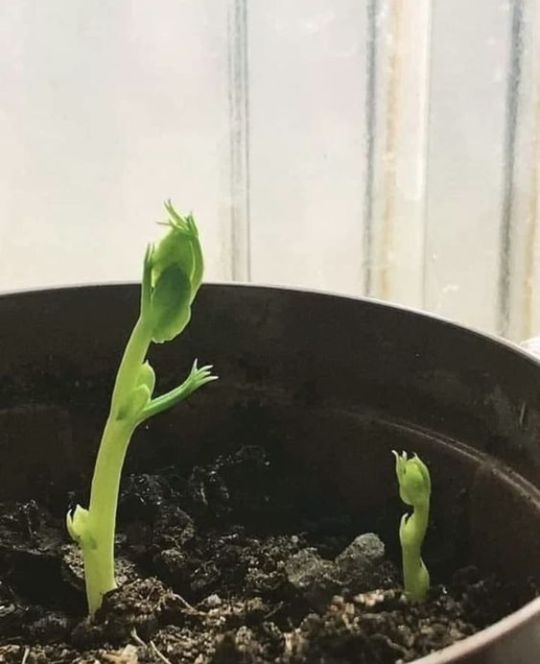
For as long as I can remember, my relationship with nature has been my prized possession. Having spent each summer as a child on the beaches of Lake Erie swimming, adding to my shell or rock collections, and often rescuing baby birds and other critters who fell victim to the changing seasons, I always felt like being outside was simply put; fulfilling.
As I grew older, I found myself spending more and more time deliberately looking to nature for entertainment, distractions, and peace- whether it was for a forest walk to look for fauna when I’d be feeling down, or randomly researching new animals or plants I’d previously heard of when I would get bored, nature always had a place for me, my emotions, and interests. Around the transition from elementary school to high school (and likely a consequence of hearing about the horrors of climate change for the first time), I decided I wanted to protect nature. Not yet knowing in what way, but for the first time understanding not everyone shares my sentiment of holding nature in the highest regard.

Now bare with me cause this is one silly story but spoiler! I’m in fourth year zoology and I’ll tell you what, or better yet who, helped me get here. On an anthropology trip to a zoo in 10th grade, I had an assignment involving watching a primate and so I walked into the Gorilla enclosure (because who doesn’t want to be even remotely like Jane Goodall?). Oddly enough there was no one else in there. After almost leaving before making eye contact with a lone gorilla in the enclosure, I went up to the glass and smiled, hoping to somehow translate my appreciation for the opportunity to see him. I’m honestly not sure what I expected but his response? Walking right up to the glass and taking a seat 2 feet away from me, staring at me with what I could only describe as sad eyes. At that point another classmate came in, jokingly saying “oh cool, he’s watching you too” and in that moment which I really didn’t see coming, I just started bawling my eyes out. Funny enough the gorilla walked away as if he did his job in sharing the sadness, but I think in that moment I just felt so sorry for the ape. We'd spent so much time in other classes learning about deforestation, global warming, etc. etc. and so it was sort of like one of those movie flashback scenes except it was like the life I thought that gorilla should have had. To this day, I still interpret that hour as my eureka moment, where I was told by an intense-eyed gorilla that animal conservation is what I’m meant to do.
Since then, I’ve had the dream of opening an animal sanctuary. To help me one day get there, I've worked at exotic animal outreach programs, was a zookeeper, participated in local conservation efforts in both Toronto and Guelph, and have even been to Madagascar this past summer to practice lemur conservation research. (I also have a ton of lovely pets to share with you but that's for another time!) At this point, it really feels like the passion could only ever grow. It’s my hope that with this blog though, I’ll be broadening my definition of nature to not just immediately go to animals so stay tuned! And go …
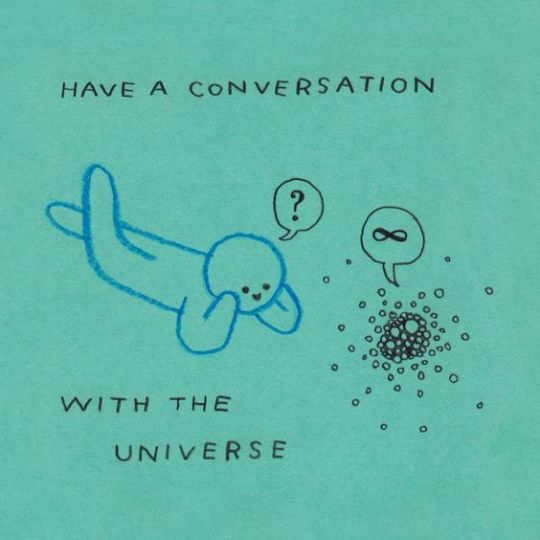
:)
*images taken from pinterest
2 notes
·
View notes